You’re already recycling paper, bottles, and cans, but there’s so much more that you can keep out of landfills.

Americans use a shocking 100 billion single-use plastic bags a year—a huge number of which make their way into combined sewage overflows and then on to the ocean, where they pollute global waters and kill upwards of 100,000 marine animals per annum, according to the
Center for Biological Diversity. You can recycle these and other kinds of soft plastics like dry cleaning bags; find a location near you on
plasticfilmrecycling.org. Make sure you know about these
15 things that should never go in the recycling bin.

Any house with kids is likely to have a never-ending supply of crayons, some of which are too short to use or quickly fall out of favor. Instead of sending these non-biodegradable items to the landfill, though, you can give them a new life and new purpose by donating them. Programs like
The Crayon Initiative collect them to distribute to kids in hospitals. You can keep those old, dried-up markers out of landfills as well with the
Crayola ColorCyclerepurposing program.
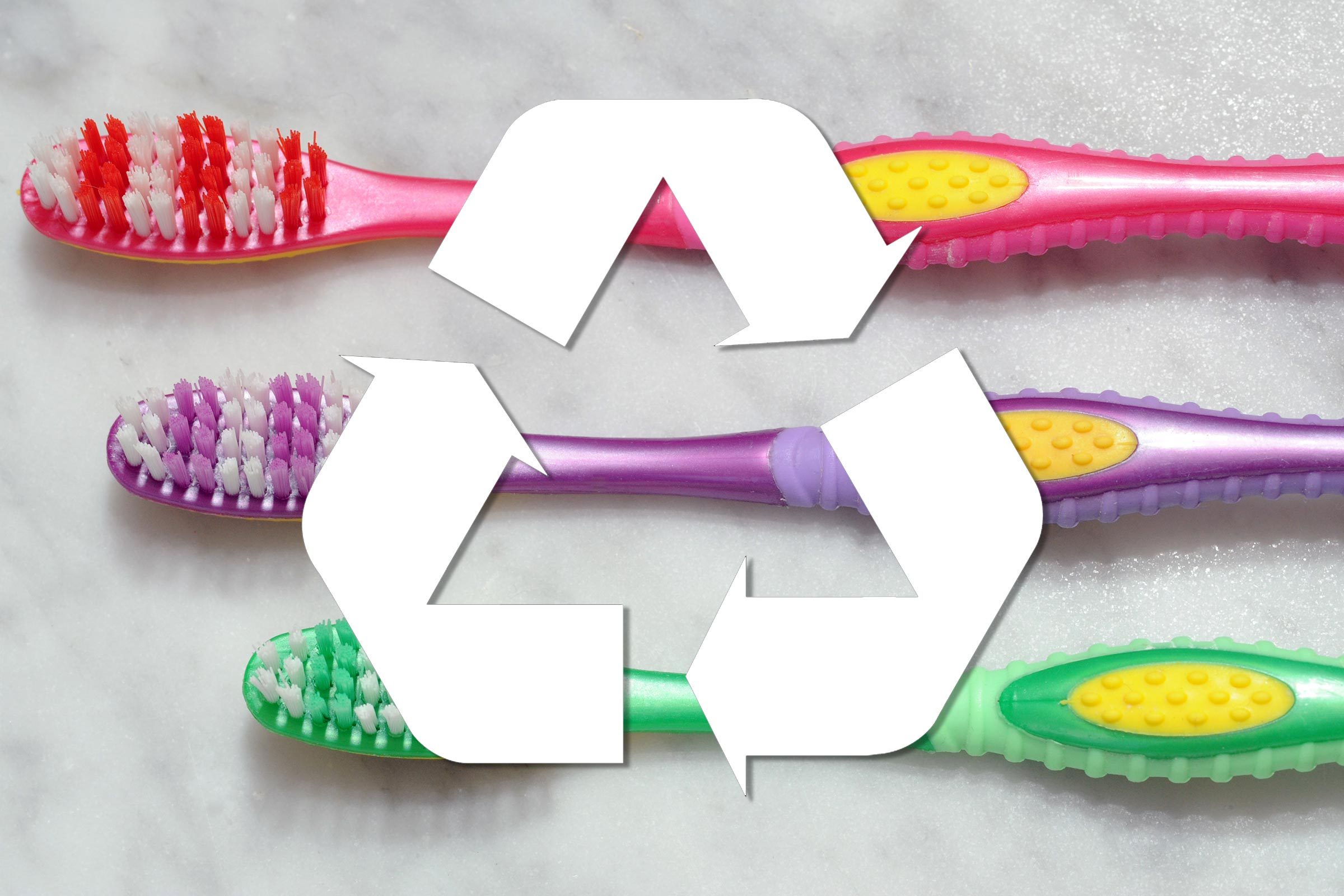
Eco-minded toothbrushes, made with sustainable materials like bamboo or with disposable, replaceable heads, are helping to keep some of the world’s 3.5 billion toothbrushes out of oceans and landfills every year. But you can do a more efficient job of disposing of the plastic ones too. A
collaboration between Sam’s Club, Colgate, TerraCycle, and the Kids in Needs Foundation lets you send your old ones for free to be upcycled into other products. Don’t miss these other
41 ways to save the planet in five minutes or less.
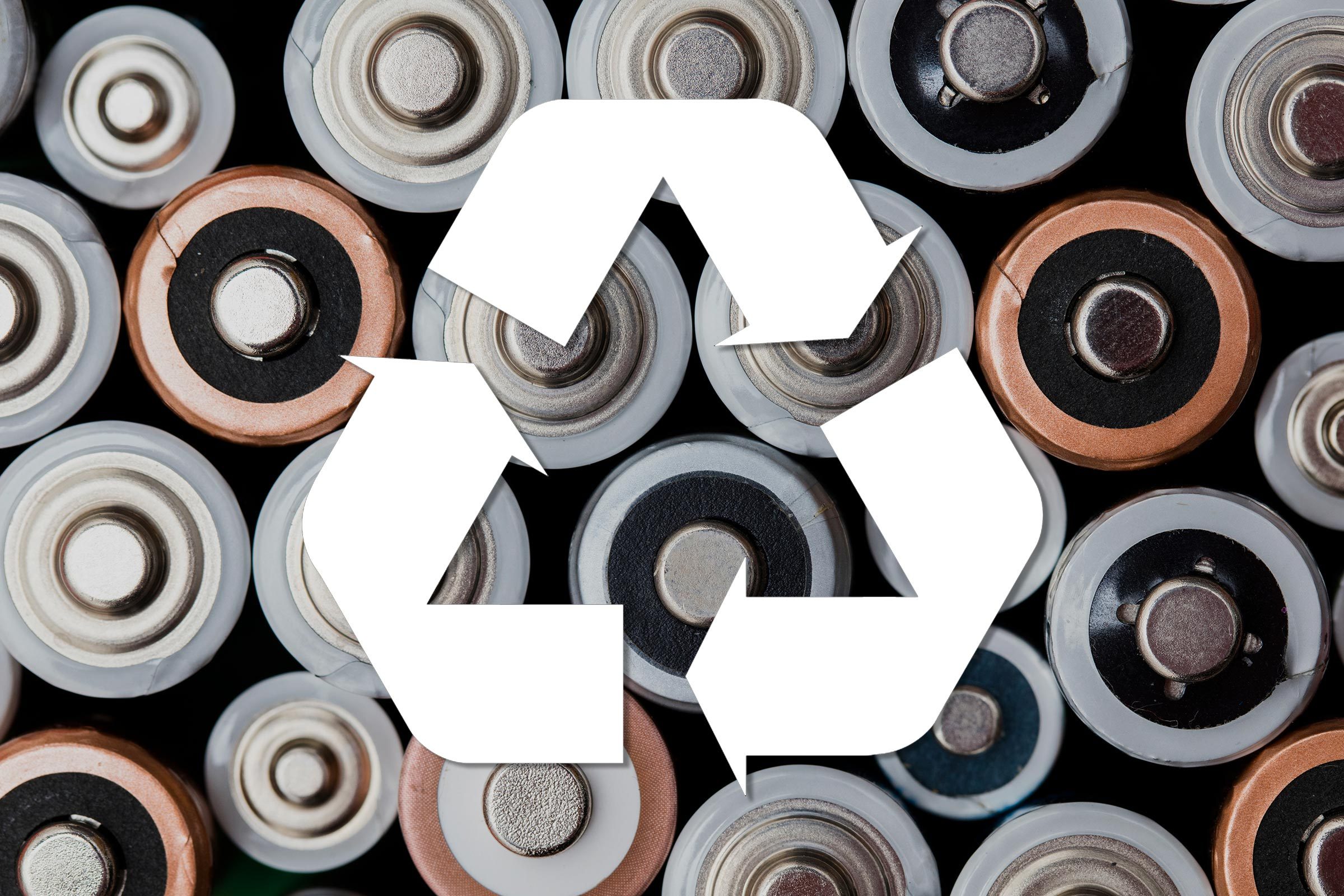
Tossed batteries are an ecological nightmare, corroding as they sit in the landfill and leaching toxic chemicals into the soil and the air, according to
experts. Although they can’t be recycled with regular household metals, there are plenty of places that accept them for recycling, including
Staples and
Lowes stores. Battery Solutions will accept old batteries through the mail too.

Y
our empty lipstick, concealer, and eye shadow containers are likely not accepted by your municipal recycling center. So what to do with these gloop-smeared bits of plastic when you’re done with them? Recycle Nation reports that many cosmetics companies are happy to take these tubes and cases off your hands—sometimes giving you a discount on future purchases—so they can turn them into new packaging. You can also send old packaging to TerraCycle through its collaboration with Garnier. On the other hand, these are 11 items you thought were recyclable but actually aren’t.
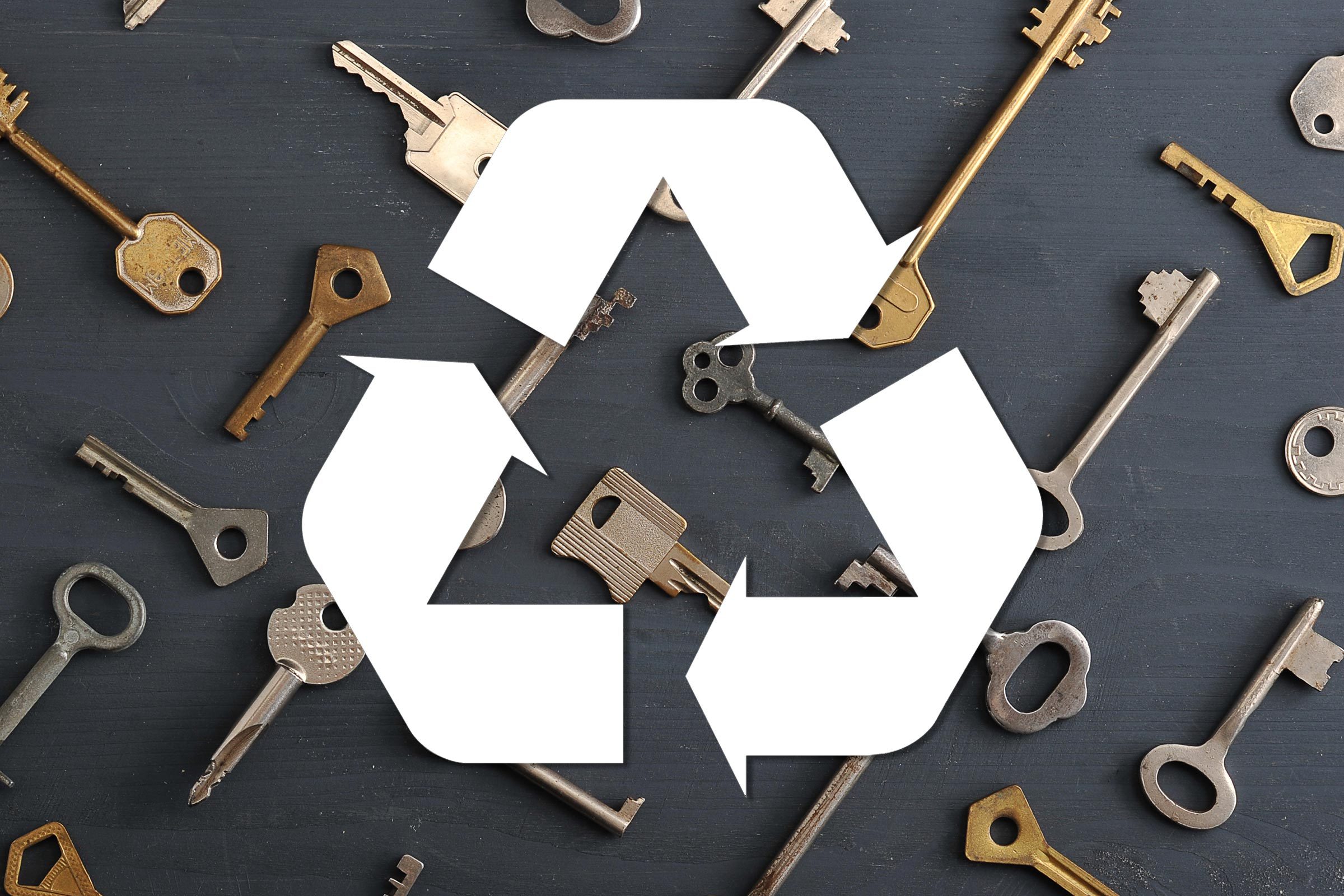
Almost everyone’s got a drawer in the house holding mystery keys they’ve been hanging on to for years. Rather than throwing them in the regular trash,
Recyclebank recommends calling around to your local recycling center to see if they accept them. Most towns won’t take scrap metal in curbside programs, but they might have options for drop-offs.

In our increasingly disposable society, Americans generate close to
16 million tons of textile waste a year—a figure that seems to be growing and leads to a massive strain on landfills and the overall environment. The good news: Clothing and other textiles in good condition are upcyclable—take them to your local Goodwill or sell them to a consignment shop.
TerraCycle sells boxes that you can fill with discarded fabrics, which the company will reuse, upcycle, or recycle. Learn more about
what happens to your used clothing donations.

Livescience.com
reports that almost 54 million tons of e-waste like old computers, tablets, TVs, phones, video game consoles get thrown away a year around the world. Luckily, centers exist widely that will take this stuff off your hands and break it down into usable parts for repurposing or recycling. Find a site near you by plugging in your state on
E-cycling Central. A lot of these centers take CDs and DVDs as well. Just make sure you
do this one thing before recycling an old phone.

Remodeling your bathroom? Believe it or not, many recycling centers will take your old toilet and turn it into the concrete that goes into local roads and sidewalks.
Chasinggreen.org suggests calling around to facilities near you to see what the procedure is—you make have to remove the seat and any screws or bolts before they’ll take your toilet off your hands.
 Lions Club
Lions Club has long set out bins in easy-to-find locations, where you can place donations of old prescription eyewear—according to
greenamerica.org, the lenses are re-ground so they can be donated to people in need. The site points out that many eye doctors’ offices collect used glasses as well. Check out these other
12 simple ways to reduce waste—and save money.

It’s inevitable—every winter you unpack the holiday decoration boxes, untangle the strings of white and colored lights, only to discover that at least one strand of them has gone dead. Programs abound for recycling them, and some even reward you with discounts or gift cards. You can find a list of possible drop-off spots at
houselogic.com. Read on for
30 ways to recycle just about anything.


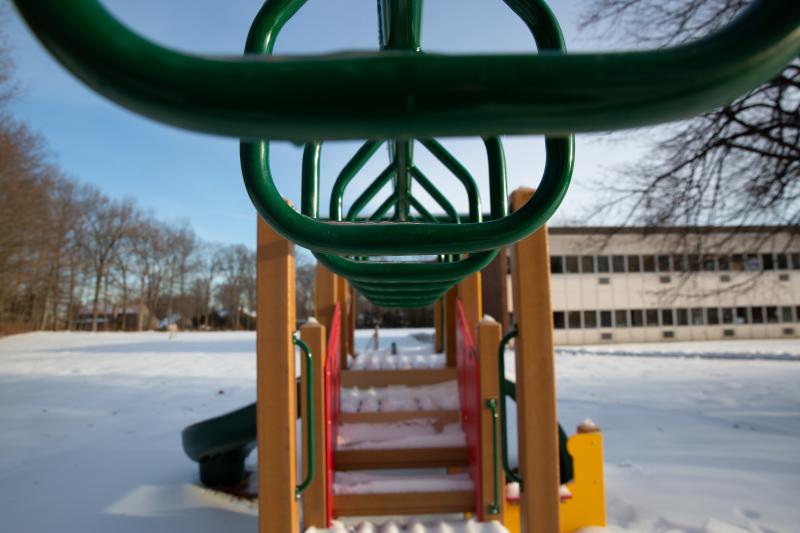
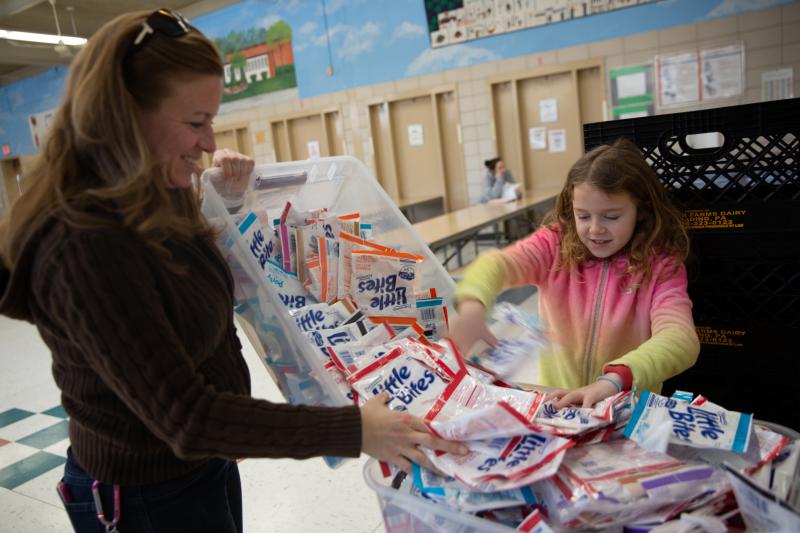
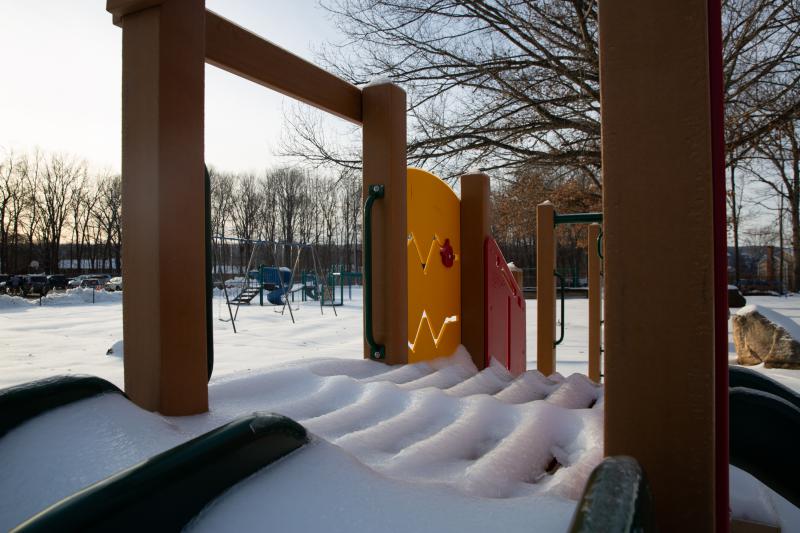
 Americans use a shocking 100 billion single-use plastic bags a year—a huge number of which make their way into combined sewage overflows and then on to the ocean, where they pollute global waters and kill upwards of 100,000 marine animals per annum, according to the
Americans use a shocking 100 billion single-use plastic bags a year—a huge number of which make their way into combined sewage overflows and then on to the ocean, where they pollute global waters and kill upwards of 100,000 marine animals per annum, according to the  Any house with kids is likely to have a never-ending supply of crayons, some of which are too short to use or quickly fall out of favor. Instead of sending these non-biodegradable items to the landfill, though, you can give them a new life and new purpose by donating them. Programs like
Any house with kids is likely to have a never-ending supply of crayons, some of which are too short to use or quickly fall out of favor. Instead of sending these non-biodegradable items to the landfill, though, you can give them a new life and new purpose by donating them. Programs like  Eco-minded toothbrushes, made with sustainable materials like bamboo or with disposable, replaceable heads, are helping to keep some of the world’s 3.5 billion toothbrushes out of oceans and landfills every year. But you can do a more efficient job of disposing of the plastic ones too. A
Eco-minded toothbrushes, made with sustainable materials like bamboo or with disposable, replaceable heads, are helping to keep some of the world’s 3.5 billion toothbrushes out of oceans and landfills every year. But you can do a more efficient job of disposing of the plastic ones too. A  Tossed batteries are an ecological nightmare, corroding as they sit in the landfill and leaching toxic chemicals into the soil and the air, according to
Tossed batteries are an ecological nightmare, corroding as they sit in the landfill and leaching toxic chemicals into the soil and the air, according to  Y
Y Almost everyone’s got a drawer in the house holding mystery keys they’ve been hanging on to for years. Rather than throwing them in the regular trash,
Almost everyone’s got a drawer in the house holding mystery keys they’ve been hanging on to for years. Rather than throwing them in the regular trash,  In our increasingly disposable society, Americans generate close to
In our increasingly disposable society, Americans generate close to  Livescience.com
Livescience.com  Remodeling your bathroom? Believe it or not, many recycling centers will take your old toilet and turn it into the concrete that goes into local roads and sidewalks.
Remodeling your bathroom? Believe it or not, many recycling centers will take your old toilet and turn it into the concrete that goes into local roads and sidewalks. 
 It’s inevitable—every winter you unpack the holiday decoration boxes, untangle the strings of white and colored lights, only to discover that at least one strand of them has gone dead. Programs abound for recycling them, and some even reward you with discounts or gift cards. You can find a list of possible drop-off spots at
It’s inevitable—every winter you unpack the holiday decoration boxes, untangle the strings of white and colored lights, only to discover that at least one strand of them has gone dead. Programs abound for recycling them, and some even reward you with discounts or gift cards. You can find a list of possible drop-off spots at 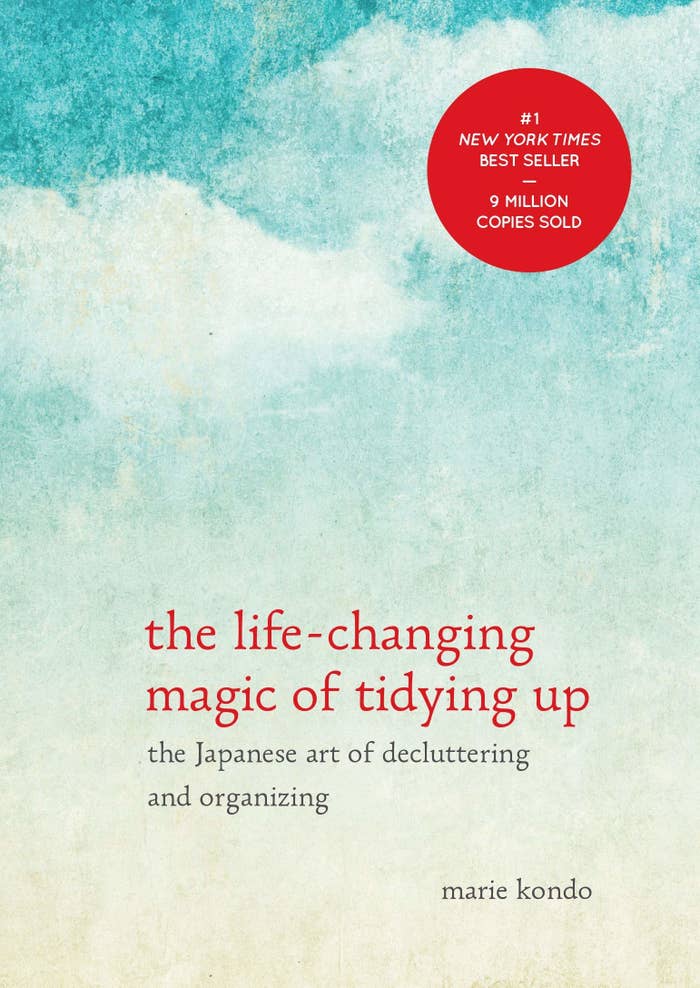 I mean yes, you can also totally watch the Netflix show an learn everything you need to know to get started! But the book's packed with extra motivation and tips. (Although I don't think it's the end-all be-all of how to live, I've used her system for my clothes and shoes, and it really does work.)
Promising review: "It's soaked with knowledge and super inspiring! As a chronically messy person, this book completely changed my perspective on 'tidying,' what to throw away or get rid of, and how to find joy in your space again, how to reclaim it! Honestly pretty awakening, and I think absolutely everyone could learn something from it." —
I mean yes, you can also totally watch the Netflix show an learn everything you need to know to get started! But the book's packed with extra motivation and tips. (Although I don't think it's the end-all be-all of how to live, I've used her system for my clothes and shoes, and it really does work.)
Promising review: "It's soaked with knowledge and super inspiring! As a chronically messy person, this book completely changed my perspective on 'tidying,' what to throw away or get rid of, and how to find joy in your space again, how to reclaim it! Honestly pretty awakening, and I think absolutely everyone could learn something from it." —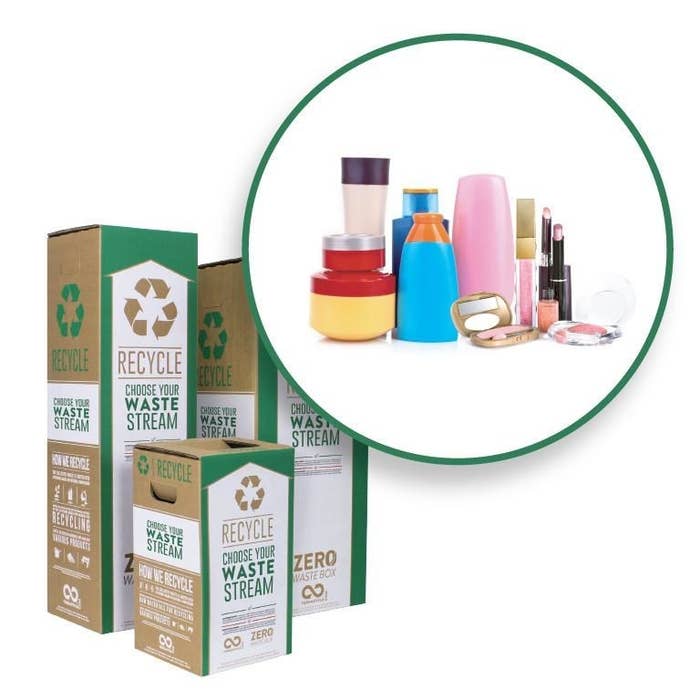 Yes, basically you're paying for your stuff to be recycled (the reason your curbside collection doesn't take all of the things = recyclers want to
Yes, basically you're paying for your stuff to be recycled (the reason your curbside collection doesn't take all of the things = recyclers want to